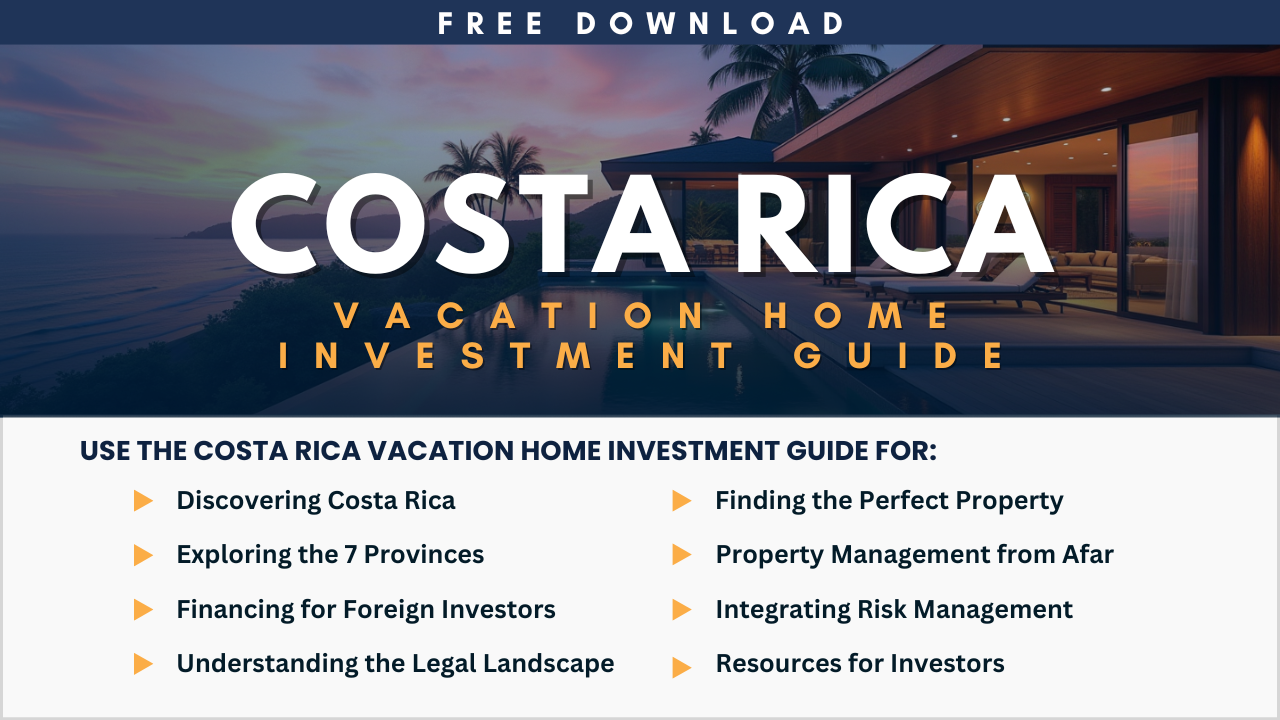
How Exchange Rates Can Eat Into Your Profits
Investing in foreign real estate or businesses can offer significant returns, and for many, it’s an exciting opportunity to diversify portfolios and tap into booming markets. Whether you're buying a vacation rental in a tropical destination, investing in commercial properties abroad, or purchasing stocks in international markets, there are undoubtedly attractive opportunities outside of your home country. However, one factor that many investors fail to consider or underestimate is the impact of exchange rates. Currency fluctuations can significantly affect the value of your investment returns, often eating in to profits and creating unexpected financial risks. The global financial system is interconnected, and as a result, the value of your home currency relative to the currency of the country in which you’ve invested can fluctuate drastically.
In this article, we’ll explore how exchange rates impact investments, why it matters when investing outside of your home country, and how you can safeguard your profits from unexpected currency fluctuations. Whether you're purchasing property in a foreign market or investing in international stocks, understanding how currency exchange affects your returns is crucial for minimizing risk and ensuring you make informed decisions.
The Basics of Exchange Rates
Before we dive into how exchange rates affect your investments, it’s important to understand the broader role currency fluctuations play in global markets and investment strategies.
When you invest in foreign markets—whether in real estate, stocks, or even bonds—exchange rates can significantly influence your profits and financial planning. These fluctuations can affect the true value of your investment returns when you convert income or proceeds back into your home currency. A seemingly small change in currency values may seem insignificant on the surface, but for international investors, these shifts can have a substantial impact on their overall return on investment (ROI).
Currency movements can influence everything from the price of the assets you purchase to the income you receive from investments abroad. As an investor, understanding how these shifts play out in the broader financial picture allows you to make more informed decisions about when to buy, hold, or sell assets. Additionally, the ability to anticipate how currency fluctuations may affect your profitability equips you with the tools to better manage risks and plan for the long-term success of your international ventures.
- Exchange Rate: The exchange rate is the value of one currency relative to another. For example, the exchange rate between the U.S. dollar (USD) and the Euro (EUR) tells you how much one U.S. dollar is worth in Euros.
- Example: If the exchange rate is 1 USD = 0.85 EUR, this means that for every $1 USD, you receive 0.85 Euros in exchange.
Types of Exchange Rates:
- Fixed Exchange Rate: This type of exchange rate is pegged to another currency or a basket of currencies. It doesn’t fluctuate as freely as a floating exchange rate. Countries with fixed exchange rates often maintain stability by tying their currency to a stronger currency, such as the U.S. dollar.
- Floating Exchange Rate: This is determined by market forces of supply and demand. For example, the Euro (EUR) and British Pound (GBP) are subject to floating exchange rates that change constantly based on global market conditions, political events, and economic factors.
Why Exchange Rates Matter to Investors
As an investor, exchange rate fluctuations can significantly impact the return on your investment, particularly when you are involved in international markets or owning assets abroad. While the inherent value of an investment may rise due to property appreciation, rental income, or business growth, fluctuations in the currency of the country where you’ve invested can either increase or decrease the value of your profits when converted back into your home currency.
Even if the asset you're invested in is performing well locally, changes in the exchange rate can result in gains or losses that may outweigh the local growth. Here are a few key areas where currency shifts can directly impact your profits:
- Impact on Property Value and Purchase Price: When investing in real estate abroad, exchange rate fluctuations directly influence how much you pay for the property. If the currency of the country you are investing in appreciates (increases in value) relative to your home currency, the property will become more expensive, and vice versa.
- Example: You decide to invest in property in Mexico, and at the time of purchase, 1 USD = 20 MXN (Mexican Peso). However, after a year, the exchange rate shifts to 1 USD = 18 MXN. This means that the Mexican Peso has strengthened against the U.S. Dollar, making your investment more expensive in terms of U.S. dollars.
- If the property value stays the same in MXN, your investment in USD has now become approximately 10% more expensive. In this case, the value of your investment diminishes simply due to the exchange rate shift.
- Impact on Rental Income and Profitability: If you earn rental income from properties abroad, changes in exchange rates directly impact how much of that income you’ll see in your home currency. For instance, rental income earned in foreign currency may seem high locally, but if the local currency weakens relative to your home currency, you could receive less when converting that income back.
- Capital Gains and Property Appreciation: When you sell a foreign property, exchange rates can significantly affect your capital gains. Even if the property value appreciates in the local currency, an unfavorable exchange rate can reduce or completely negate your capital gains when converting the proceeds back into your home currency.
How to Protect Your Profits from Currency Fluctuations
While currency fluctuations are inevitable, there are strategies you can use to mitigate risks and protect your profits. Currency fluctuations are a natural part of the global financial landscape, especially when investing in foreign markets. These fluctuations can have a substantial impact on your returns, particularly when converting profits back into your home currency. While you cannot control the markets, there are proactive steps you can take to minimize the risks and safeguard your profits. Below are practical strategies to help protect your investments from the unpredictability of currency shifts.
- Hedge Currency Risk: One of the most effective ways to protect yourself from adverse exchange rate movements is to hedge your currency risk. Hedging involves using financial instruments to lock in an exchange rate for the future, protecting you from fluctuations.
- Forward Contracts: These allow you to lock in a specific exchange rate for a future date, ensuring you get a predictable rate for any transactions or conversions of currency.
- Currency Options: A form of hedging that gives you the right (but not the obligation) to exchange at a certain rate in the future, offering more flexibility than forward contracts.
- Geographical Diversification: Diversification is a well-known strategy for reducing risk in investments, and geographical diversification can provide similar protection against currency fluctuations. By spreading your investments across different countries, you are less likely to be impacted by a downturn in any one currency.
- Consider Local Financing: When purchasing property abroad, you may want to consider taking out a local mortgage in the country where you're investing. This allows you to lock in your expenses and payments in the local currency, helping to reduce your exposure to currency risk. Additionally, paying local expenses in the local currency means you won’t need to convert large sums of money to your home currency for regular property expenses.
- Monitor Exchange Rates Regularly: The key to managing currency fluctuations is being proactive. Regularly monitor exchange rate trends and market conditions. Some online platforms and tools provide real-time alerts and charts, helping you keep an eye on fluctuations. Being aware of upcoming economic events that may influence currency values (like elections, interest rate decisions, or geopolitical events) will help you make informed decisions.
- Tip: Set up alerts that notify you of significant shifts in exchange rates. This way, you can make informed decisions regarding when to convert your income or sell your property.
- Consider Using Currency Exchange Services: Traditional banks often charge high currency exchange fees that can eat into your profits. Using specialized currency exchange services can offer better rates and lower fees, making them an attractive option for investors regularly transferring money across borders.
- Diversifying Your Revenue Sources: If you rely heavily on foreign income, consider diversifying your revenue streams in ways that are less affected by exchange rate fluctuations. For example, consider investing in commodities or assets that are priced in USD or another stable currency. You can also diversify by adding foreign stock investments or global bonds to your portfolio, which may be less vulnerable to short-term currency shifts.
Conclusion
Exchange rates can have a profound impact on your investments, especially when you’re dealing with properties, rental income, or capital gains in foreign countries. Even small fluctuations in the currency market can eat into your profits, making it essential for international investors to carefully consider how exchange rate shifts will affect their returns.
By utilizing currency hedging, geographical diversification, local financing, and regular monitoring, you can ensure that your investments are shielded from unfavorable shifts in exchange rates. Additionally, using specialized currency exchange services and diversifying your revenue streams further reduces your exposure to currency risk. With these strategies in place, you can protect your profits and continue to grow your international investment portfolio with confidence.
If you’re looking to make smarter, more informed decisions when investing abroad, consulting with financial experts, using hedging strategies, and regularly evaluating the currency markets will ensure that exchange rate fluctuations don’t derail your profits.
👉 For more tips on planning your real estate investments and crafting the perfect exit strategy, visit vacationpropertyexpertnetwork.com.







